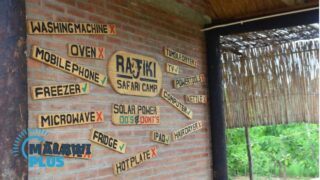Health Information for Travellers to Malawi
Tourists to Africa often worry about tropical diseases, but if you take the appropriate precautions, you’ll be unlikely to succumb to any of the serious health hazards.
Stay up to date with your vaccinations and take basic preventive measures.
Within Malawi, private clinics, hospitals and pharmacies can be found in most large towns, and doctors generally speak fluent English.
Consultation fees and laboratory tests are remarkably inexpensive when compared with most Western countries, so if you do fall sick it would be absurd to let financial considerations dissuade you from seeking medical help.
Insurance
Find out in advance whether your insurance plan will make payments directly to providers or will reimburse you later for overseas health expenditures.
Most doctors and clinics in the region expect up-front payment in cash.
It’s vital to ensure that your travel insurance will cover any emergency transport required to get you at least to Johannesburg in South Africa, or all the way home, by air and with a medical attendant if necessary.
If your policy requires you to pay first and claim later for medical treatment, be sure to keep all documentation.
Some policies ask you to call back (reverse charges) to a centre in your home country where an immediate assessment of your problem is made.
Since reverse-charge calls aren’t possible in many parts of the region, contact the insurance company before setting off to confirm how best to contact them in an emergency.
Recommended Vaccinations
The following vaccinations are recommended for Malawi:
All Travellers
You should be up to date on routine vaccinations while travelling to any destination. Some vaccines may also be required for travel.
Routine vaccines
Make sure you are up-to-date on routine vaccines before every trip.
These vaccines include measles-mumps-rubella (MMR) vaccine, diphtheria-tetanus-pertussis vaccine, varicella (chickenpox) vaccine, polio vaccine, and your yearly flu shot.
Most Travellers
Get travel vaccines and medicines because there is a risk of diseases in the country you are visiting
Hepatitis A:
CDC recommends this vaccine because you can get hepatitis A through contaminated food or water in Malawi, regardless of where you are eating or staying.
Typhoid:
You can get typhoid through contaminated food or water in Malawi.
CDC recommends this vaccine for most travellers, especially if you are staying with friends or relatives, visiting smaller cities or rural areas, or if you are an adventurous eater.
Some Travellers
Ask your doctor what vaccines and medicines you need based on where you are going, how long you are staying, what you will be doing, and if you are travelling from a country other than the US.
Cholera:
CDC recommends this vaccine for adults who are travelling to areas of active cholera transmission.
Areas of active cholera transmission include the districts of Blantyre (last case reported February 2018), Dedza (last case reported April 2018), Dowa (last case reported February 2018), Karonga (last case reported April 2018), Kasungu (last case reported January 2018), Likoma (last case reported April 2018), Lilongwe (last case reported May 2018), Mulanje (last case reported January 2018), Nkhatabay (last case reported January 2018), Nsanje (last case reported April 2018), Rumphi (last case reported April 2018), and Salima (last case reported June 2018) in Malawi.
Cholera is rare in travellers but it can be severe. Avoid unsafe food and water and washing your hands frequently can also prevent cholera.
Hepatitis B:
You can get hepatitis B through sexual contact, contaminated needles, and blood products, so CDC recommends this vaccine if you might have sex with a new partner, get a tattoo or piercing, or undergo any medical procedures.
Rabies:
Rabies can be found in dogs, bats and other mammals in Malawi, so CDC recommends this vaccine for the following groups:
- Travellers involved in outdoor and other activities (such as camping, hiking, biking, adventure travel, and caving) that put them at risk for animal bites.
- People who will be working with or around animals (such as veterinarians, wildlife professionals, and researchers).
- People who are taking long trip or moving to Malawi
- Children, because they tend to play with animals, might not report bites, and are more likely to have animal bites on their head and neck.
Yellow Fever:
There is no risk of yellow fever in Malawi.
The government of Malawi requires proof of yellow fever vaccination only if you are arriving from a country with risk of yellow fever.
Malaria
One of the biggest health threats in Malawi is malaria.
There is no vaccine against this mosquito-borne disease, but a variety of preventative drugs is available, including mefloquine, malarone and the antibiotic doxycycline.
The most suitable choice of drug varies depending on the individual and the country they are visiting. Your doctor can help you decide which medicine is right for you.
Hospitals
In Malawi, free health care is available in all public hospitals, though their ability to cope with the demand is often challenged.
For common health problems and fast diagnosis, the public hospitals rely on Health Surveillance Assistants, who live in the communities, and who can quickly identify any breaking infections in their weekly reports.
There are four tiers of public hospitals.
The highest is the central hospitals, with international standards of medicine.
There is Kamuzu Central Hospital (KCH) in the Central region, Mzuzu Central Hospital in the north, and Zomba General Hospital and Queen Elizabeth Central Hospital (QUECH) in the South.
Officially, these are called referral hospitals.
There are district hospitals in every district, save for Likoma and Blantyre, and then there are rural hospitals in the major trading centres.
The last tier is made up of health centres in almost every other town or traditional authority.
The second-biggest health service provider is the Christian Health Association of Malawi (CHAM), which runs heavily subsidized, semi-public health service.
They have a contract with the government to provide essential services in situations where there is no public health provider.
The main medical insurance provider is the Medical Aid Society of Malawi (MASM).







